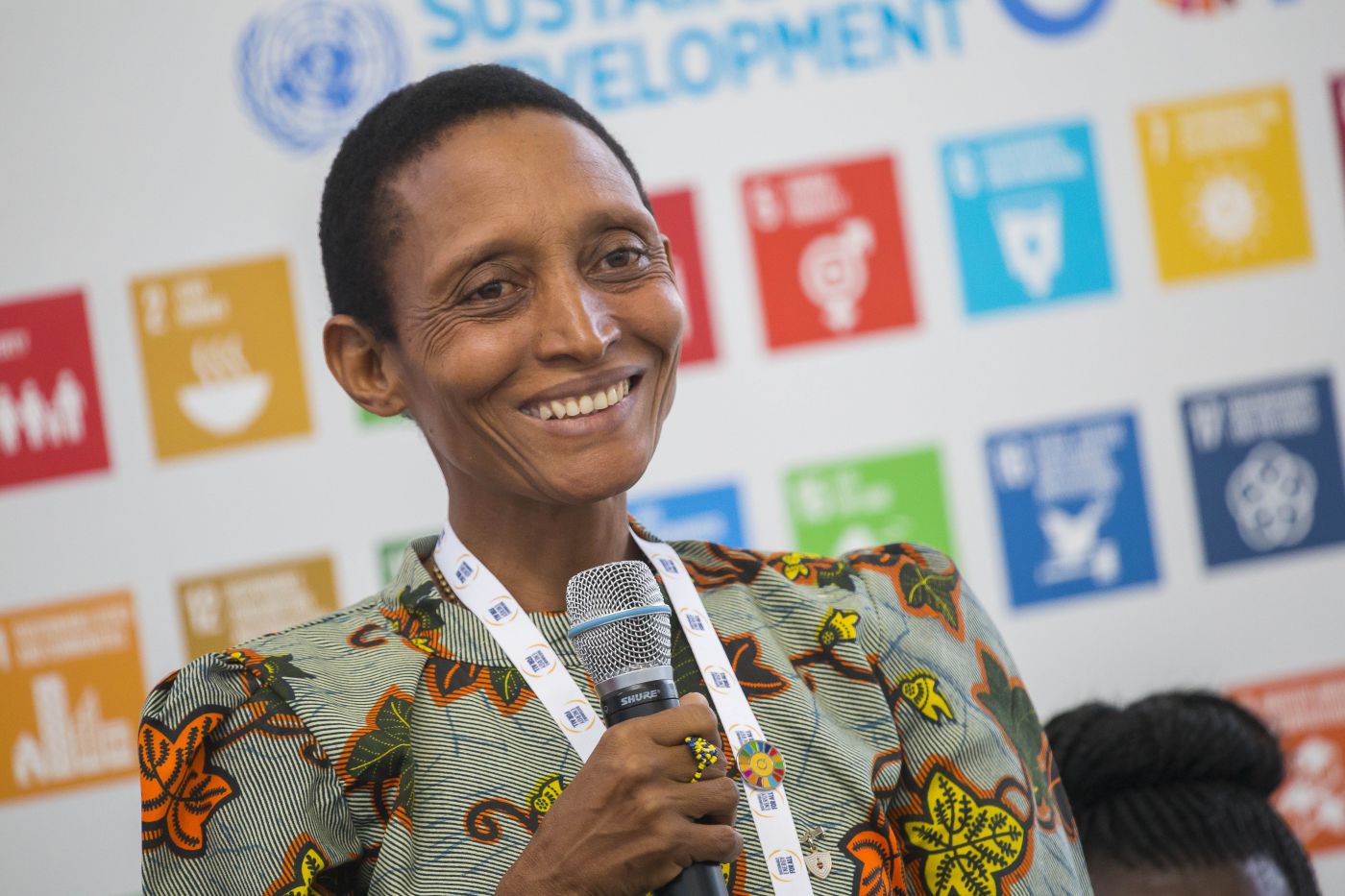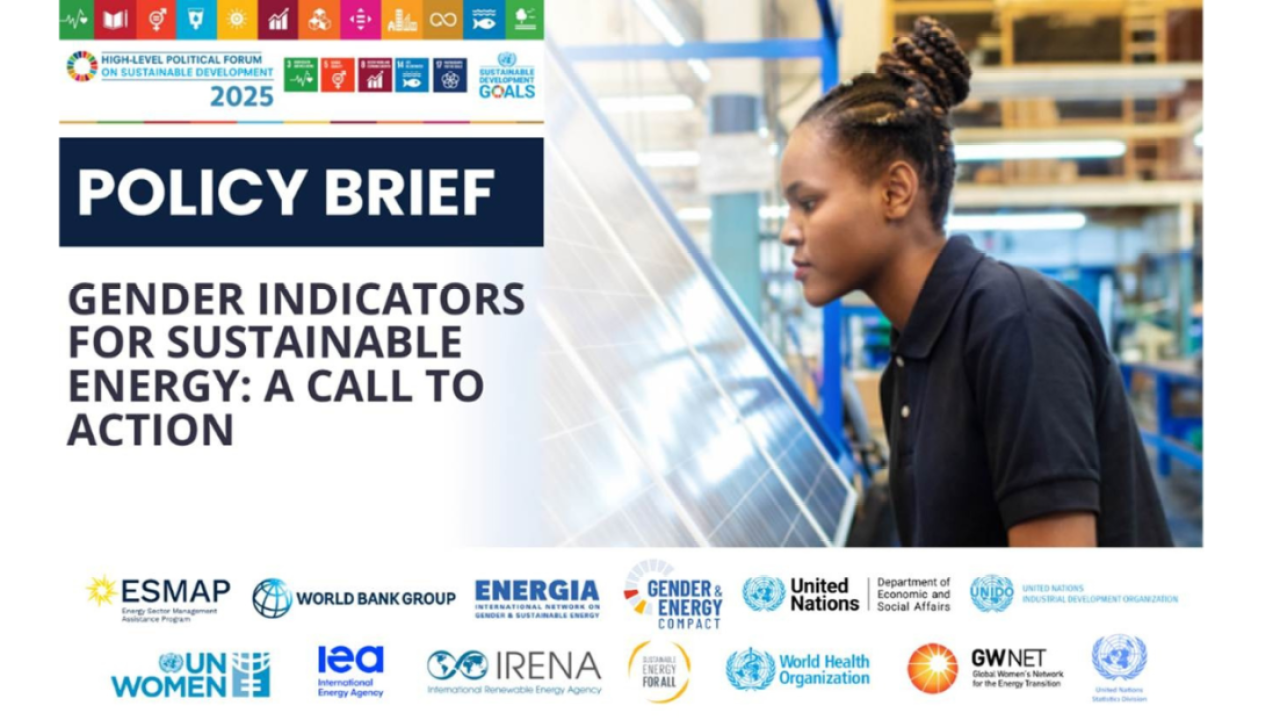Dar Es Salaam, Tanzania – On August 24, 2017, Solar Sister, in collaboration with the UN Foundation-led Energy Access Practitioner Network and ENERGIA will host a workshop to highlight the need for more meaningful inclusion of women in clean energy access value chains and policies. Solar Sister will also launch new research from the Miller Center for Social Entrepreneurship on the benefits of its women-centered clean energy entrepreneurship.
Women can play a crucial role in scaling up energy access, especially in underserved communities across Tanzania, but so far few have gotten the opportunity to do so.
“If we want to tackle poverty, and bring clean energy to the remotest corners of Tanzania, we have to involve women,” says Fatma Muzo, Solar Sister Tanzania Country Manager. “Solar Sister is rising to this challenge: we offer the livelihood opportunity and back that up with skills and market linkages support so that Tanzanian women gain the confidence to start clean energy businesses.”
The event will bring together players across the sustainable energy sector in Tanzania to identify the challenges and unique opportunities for women to contribute to the sector’s growth.
“As a long-standing champion of both energy access and girls and women, the UN Foundation is committed to ensuring women are at the heart of clean energy access value chains and policies” says Jem Porcaro, the Senior Director of Energy Access for the UN Foundation. “We are delighted to be partnering with Solar Sister to explore the way forward for gender inclusivity in the distributed energy sector, and to bring into the conversation the diverse perspectives of our Practitioner Network members.”
Solar Sister is also showcasing new research this week that shows a ripple effect of benefits to customers buying solar products from Solar Sister entrepreneurs.
Turning on the Lights: Transcending Energy Poverty Through the Power of Women Entrepreneurs, produced by Santa Clara University’s Miller Center for Social Entrepreneurship, examines the knock-on effect of Solar Sister’s woman-centered last-mile solar distribution model on the consumer. Researchers found that solar lanterns sold by Solar Sister’s entrepreneurs improve children’s education, lower risks of accidents, improve health, increase household finances, help grow current businesses and kickstart new ones.
“The impact of solar lanterns goes well beyond being a sustainable form of lighting,” says Dr. Leslie Gray, the lead author of the study. “Solar-powered lighting is a technology central to the development of rural Africa, transforming the education, health, time, finances, and sense of power in every household it reaches.”
//////////////
For media inquiries, please contact:
Solar Sister, Arusha, Fatma Muzo (English, Kiswahili): +255 759 762 304 or fatma@solarsister.org
Santa Clara University, Deepa Arora, Media and Internal Communications, Director, SCU, California +1 408 554 5125 or darora@scu.edu
United Nations Foundation/ Energy Access Practitioner Network, Washington, DC, Yasemin Erboy Ruff (English, French): +1 202 887 9040 or yerboy@unfoundation.org
//////////////
About Solar Sister
Founded in 2010, Solar Sister eradicates energy poverty by empowering women with economic opportunity. Solar Sister is creating a deliberately woman-centered direct sales network to bring the breakthrough potential of clean energy technology to even the most remote communities in rural Africa. To learn more, please visit www.solarsister.org
About Miller Center for Social Entrepreneurship
Miller Center is the largest and most successful university-based social enterprise accelerator in the world. Founded in 1997, Miller Center is one of three Centers of Distinction at Santa Clara University, located in the heart of Silicon Valley. Here we leverage this entrepreneurial spirit with the University’s Jesuit heritage of service to the poor and protection of the planet. For more information, please visit www.scu-social-entrepreneurship.org
About ENERGIA
ENERGIA, International Network on Gender and Sustainable Energy, was founded by a group of women involved in gender and energy work in developing countries. To date, ENERGIA Networks have been established in 22 African and Asian countries. ENERGIA makes a difference in three main areas: contributing to scaling up the delivery of energy products and services through the strengthening women-led energy enterprises; advocating for gender mainstreaming in energy policy and practice; creating the evidence base for incorporating a gender lens through research.
About the Energy Access Practitioner Network
The Energy Access Practitioner Network, which has close to 2,500 members globally, supports market-led, distributed energy solutions toward the goal of universal energy access by 2030. It catalyzes energy service delivery by serving as a global platform where leaders and practitioners from around the world come to gain insight, share best practices, and create powerful partnerships in support of distributed energy solutions. The Practitioner Network is open to all organizations and individuals actively involved in the implementation, development, financing, and management of delivering energy sustainably, affordably, and effectively. For more information and to join, please visit www.energyaccess.org.







